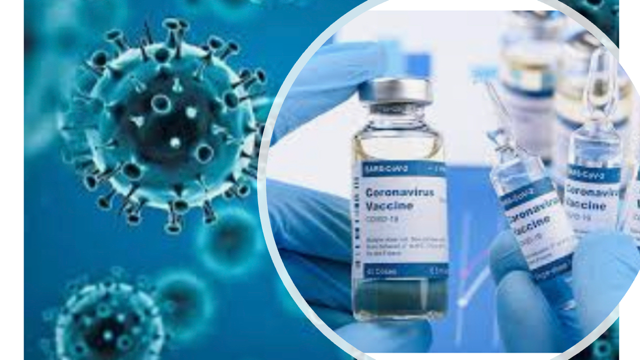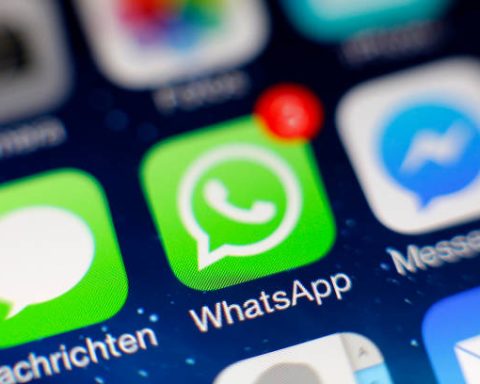CORONAVIRUS(i.e. COVID-19) vaccine booster dose improves on the protection received from the previous first and second doses of the vaccine. As time goes on the level of antibodies in your body will start to decrease but vaccine boosting helps to restore or improve on the antibody level in your body.
China’s CoronaVac and Sinopharm vaccines, which account for almost half of the 7.3 billion COVID-19 vaccine doses delivered globally, are made by attenuating the virus so that it is weakened enough to generate an immune response when injected into the body. But emerging data suggest that immunity from two doses of these vaccines rapidly degrades post immunisation, while protection the vaccines offered to those aged over 60 is very limited. Under this scenario, WHO has recommended for a third dose of the vaccines or a mix-and-match of another vaccine for full protection against the Severe Acute Respiratory Syndrome Coronavirus 2 (SARS-CoV-2).
Join our WhatsApp ChannelThe body immune system is made up of B and T cells. The former provides humoral immunity while the later is involved in cellular immunity. In a nutshell, B cells produce antibodies that attack antigens (foreign bodies e.g. virus) while T cells are involved in cytotoxicity and are specific in their attacks.
Memory B cells are “offsprings” of the original B cell, which initially come into contact with the antigen. Memory B cells circulate in the blood stream and when they encounter the same antigen, a faster immune response (or antibody production) is triggered. In a “first released” paper published in the 14 October 2021 edition of the journal, Science, by Rishi and coworkers, they found that mRNA vaccines like the Pfizer-BioNTech and AstraZeneca-Oxford vaccines, which are based on encoding a stabilised version of the full-length SARS-CoV-2 Spike protein, influenced these functional memory B cells so that they increased in concentration three to six months after vaccination. It gets even better, these B cells also recognise and act against the Alpha, Beta, and Delta variants.
According to Rishi and co, mRNA vaccines also induced both the “helper” and “killer” cells of the T cells called CD4+ and CD8+ T cells, respectively. And people with pre-existing immunity (e.g. derived from previous encounter with the virus), have their antibody levels increased significantly when given any of the mRNA vaccines. Additional advantage is that the peak levels of antibodies formed in the body remains constant without much decline.
The above taken together, shows that vaccination with mRNA vaccines triggers “robust cellular memory to SARS-CoV-2 and its variants for at least 6 months after mRNA vaccination.” _Rishi et al., 2021.
With these aforementioned knowledge in mind, the question then arises, should COVID-19 vaccine booster programmes be encouraged or not? On the one hand, countries are keen to protect their citizens against the virus and return life to as near normal as possible pre-pandemic times. But on the other hand, when ethical issues are taken into consideration, it is hard to imagine initiating a vaccination booster programme when more than three-quarters of the world population are yet to even get a single-dose of the vaccine!
Here is what United Nations Secretary-General, Antonio Guterres, said at the UN General Assembly about the erratic and unequal distribution of COVID-19 vaccines, “This is a moral indictment of the state of our world. It is an obscenity. We passed the science test. But we are getting an F in ethics.”
Meanwhile, ca. 11 billion doses are needed for full vaccination of 70% of the world’s populations. By full vaccination, we are talking about only two doses of the vaccines, not booster doses! Going by the increased rate of vaccination around the world, we are likely to achieve about 10 billion doses by the end of the year. But majority of these doses as high as 80%, have been delivered to the West and other middle-income countries; whereas only ca. 1 % of people in the low-income countries have received at least only one dose of the vaccines!
China in her vaccine diplomacy, has donated ca. 30 million vaccines to ca. 60 countries. While the G7 group pledged extra doses of vaccines to low- and middle-income countries by the end of next year with the US, under President Biden, pledging to donate 500 million more doses of the Pfizer-BioNTec vaccines to poorer nations from next year – bringing her total commitment to more than one billion. The UK pledged 100 million doses, ditto the EU and Canada. While Germany, France and Japan each pledged 30 million doses, respectively, and Italy 15 million.
COVAX, an initiative established to distribute vaccines to low- and middle-income countries, are having a problem, which is hindering its aim to vaccinate at least one-fifth of the population of each low- and middle-income countries by the end of this year. This problem is in part caused by India where six out of the nine currently used vaccines are generically manufactured. With the high surge in coronavirus infection in India, the government at one point placed an embargo on vaccine export as she needed the vaccines for her own population!
Another complaint from COVAX is that many vaccine donations are being made in small quantities and most often just when the vaccines are about to expire so that when eventually the vaccines get to where they are needed most, they are already expired! This is a bit like the supermarkets hoarding food until the expiration dates and then slice the prices to a quarter or half of the original prices! In other words, majority of what was promised COVAX are leftovers, which without the recipient countries would have been thrown away, anyway. And the salt in the wound is that some of the so-called donors received accolades at the time of their promises! Thus, the “donors” saved money, which otherwise they would have spent disposing the expired vaccines as well received praises at the same time – eating one’s cake and having it back!
Nevertheless, Israel in late August of this year approved the administration of a third (or booster) dose of the Pfizer-BioNTech vaccine (i.e. aka BNT162b2 messenger RNA vaccine), for people aged 60 years and above. The booster dose was for people who had had their second jab at least 5 months previously.
Data collected between 30 July when the programme started and 31 August 2021 showed that 12 days after the booster dose was administered, the rate of infection was lower by a factor of 11 when compared to non-booster group; and the rate of severe illnesses was also lower by a factor of 20.
These data and the obvious implications (i.e. the protection gained by a booster dose) are important lessons for richer countries considering a change in public health policy vis-a-vis containment of the COVID-19 problems in their countries.
As at now, Israel has extended the booster programme to all her citizens. Other countries including the US, and most EU countries are either beginning to implement the booster dose programme or have plans to do so in the future. Morocco, which has administered the most second dose vaccination in Africa are planning to implement a booster dose vaccination programme. Ditto some countries in Asia, notably China, South Korea, Cambodia and Indonesia. In the Middle East, Bahrain, Turkey, and UAE, have plans for a booster programme. Various countries in the South American continent are also implementing booster programmes, especially Chile, Uruguay, Ecuador, Brazil and Panama.
Most countries implementing booster programmes are initially focusing their booster programmes on the immunocompromised and aged people, but with time, the exercise will trickle down to the rest of the population.
In the UK, people aged 50 years and over, those deemed at risk or immunocompromised people, and those engaged in social care work are being offered a booster dose of COVID-19 vaccine.
In summary, when it comes to self-preservation, ethics fly out of the window!













